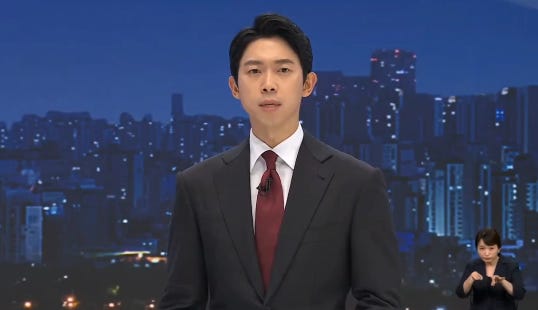Sensationalism, Suga and when newsrooms make mistakes
When the drive for views and clicks comes at the cost of accuracy
(Photo credit: Getty Images)
Two weeks ago, BTS member Suga posted a statement on the social media platform Weverse, apologizing for driving an electric scooter while under the influence of alcohol.
As a result of his actions, he was fined for violating South Korea’s traffic laws, and had his license revoked. According to police reports, he was found alone on the ground after falling, and no one else was injured. Suga added in his statement that he did not know that riding a scooter intoxicated would be in violation of laws. “I would like to bow down and apologize to everyone,” he wrote.
The next day, Suga’s label, Big Hit Music, further clarified Suga’s statement. He was wearing a helmet while operating the scooter, travelled about 500 metres and was escorted home by police. The label also apologized for Suga’s “inappropriate behaviour” and added he would face disciplinary action as the rapper is currently performing duties as a social service agent.
News of Suga’s incident quickly dominated my social media feeds and group chats, with discourse becoming quite divisive. Suga shouldn’t be penalized for making a “simple human mistake” one comment read. Some were much less forgiving, saying Suga should be kicked out of BTS and charged instead. A couple of my friends agreed that Suga probably shouldn’t have operated a vehicle while drunk, though came to the conclusion that even idols are not immune to making poor choices. Like most journalists, I waited for more information to come out. Unsurprisingly, misinformation was already quickly spreading on news blogs and forums.
A story like this is fodder for any newsroom, as it involves all the ingredients to attract readers: a global star involved in a scandal. Many editors and journalists would argue it is of public interest due to his millions of fans across the world. And therefore, any subsequent news article would drive up clicks, views and is worth following.
(JTBC issues an apology)
But here’s where things went south. Days after the incident, South Korean network JTBC released CCTV footage of a man alleged to be Suga falling off an e-scooter while cruising down a main road. The footage was confirmed to be false and misreported. And as a result, JTBC had to air a public formal apology for the mistake. In first year journalism school, these are the types of things instructors teach you to steer clear from. Information should always come from reliable sources! Most newsrooms also require a second source for extra protection.
The question about how a newsroom can get something so wrong is terrible, but sadly not a surprise. News is a dying business. Media layoffs at legacy newsrooms seem to take place every other month. X (formerly known as Twitter) no longer verifies most public figures and journalists unless they pay for it, therefore allowing anyone to buy a checkmark. And many more people would much rather watch a content creator share their hot takes on news, rather than going to the source itself.
I also somewhat understand the position of JTBC, who thought they probably had a scoop on their hands.
These types of scenarios are ones we face daily as journalists. And not all newsrooms have the same standards. While I have never spent time working in Korea, I did spend a summer working in Hong Kong. And the philosophy and standards for what made a story were drastic compared to my time working in Canada.
During my summer in Hong Kong, online views and clicks often took precedence. It was clear sensationalism was a big driver of business, and at times it would lead to questionable journalistic practices. One section of the paper covering China would consistently take videos and information posted on Weibo and report it as fact. And at one point, I, a summer intern at the time, felt I had to step in.
Working at the video desk, a colleague walked over to me and said we had to quickly post CCTV video of a woman saving her son before falling to her death in an escalator. While not graphic, the clip was very disturbing. I immediately called my boss and asked what to do. He said, “they’re crazy if they want to publish that.”
Eventually we all came to a compromise, adding a warning at the top of the video and blurred out identifying details. But the level of urgency to publish first shocked me. Nothing is ever a rush when it’s purely for shock value and does nothing to serve the public.
(Photo credit: HYBE)
While two different scenarios, these are the types of journalistic quandaries one faces during the job. And clearly, the rush to report an update on Suga’s situation definitely took precedence over the facts. And while I’m not saying that North American media doesn’t have its screw-ups, the culture of news does range differently from continent to continent. And unfortunately, the subject of the story is often the one who has to pay the consequences…especially when misinformation is involved. The damage to Suga’s image is already done in many people’s eyes.
While I do believe Suga has the support that can help him move forward from this incident, I also believe it will be hard to recover from. Epik High’s Tablo, who once became the subject of controversy following a fake rumour over his Stanford degree, told me two years ago that it took him more than a decade to even talk about the impact the story and public bashing had on his life. And in other instances like the case of actor Lee Sun Kyun, things have also turned tragic. Last year, he became the subject of an ongoing drug investigation. The immediate backlash following it resulted in him taking his own life.
Newsrooms have a responsibility to get things right before reporting things first. And while Suga no doubt continues to face the fallout for driving his scooter under the influence, it doesn’t help the public interest that a misreported video was published when not enough due diligence was done in the first place.
AUTHOR’S NOTE: Accountability is important to me, so please address corrections and concerns by sending me an email at bunnipopnewsletter@gmail.com. Continue the conversation by following bunni pop on Instagram and Threads.






